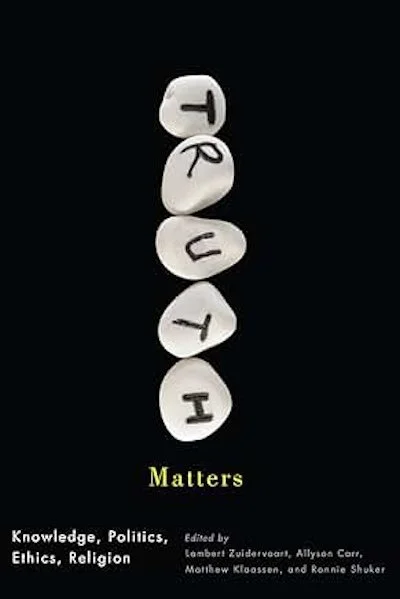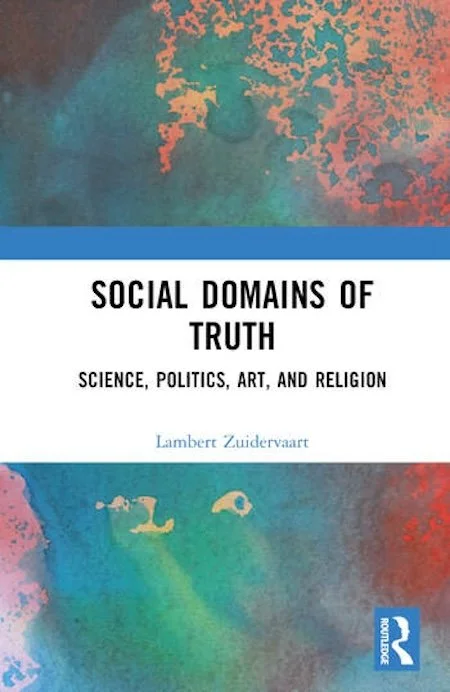Attacked Academy Is Tongue-Tied about Truth
Authoritarian Attacks
The American academy is under attack. Authoritarian populism—the reigning ideology in the current Trump administration—dismisses academic expertise, and it opposes the values universities have traditionally upheld. Central to these are the idea of truth, the ideal of academic freedom, and the societal principle of solidarity. In their place, power-grabbing Trumpistas want to install suspicion, fear, and blatant white nationalism.
Is it any wonder they reject the policies of diversity, equity, and inclusion? Cancel billions of dollars in federal funding for university-based research? Enter debilitating lawsuits against leading universities? Or dismantle the federal Department of Education? Trump and his minions seek total control of civil society and cultural life. If they cannot bend independent universities to an authoritarian populist agenda, they’ll try to destroy them instead. Hence the American academy is under attack.
It's astonishing how quickly and effectively this attack has unfolded. It’s also discouraging to see how badly university leaders have floundered in their response. Although Harvard University is fighting back by filing a major lawsuit against the Trump administration’s attempt to cut off $2.6 billion in federal research funding, there’s already talk that it might pay the federal government $500 million instead to “settle” their dispute. Columbia University has decided to pay a $200 million fine to ward off the accusation of not doing enough to counter antisemitism. Brown University and the University of Pennsylvania have also reached settlements in the past month, even as the administration has put approximately 60 other schools under investigation for alleged antisemitism.
Appeasing Fascists
If university leaders think such appeasement will end the attacks, they’re sadly mistaken. Already in mid-March, the Editorial Board of The New York Times correctly noted that “Mr. Trump’s multifaceted campaign against higher education is core to [his] effort to weaken institutions that do not parrot his version of reality.” So too, Suresh Naidu, a professor at Columbia University, observes in a recent guest essay about the deal his school struck to preserve federal research funding: “Anyone who thinks the [Trump] administration will mutely walk away after the ink is dry needs to look at both the past behavior of autocratic regimes in general and this administration’s in particular.”
Quoting leaders of the American Association of Colleges and Universities and the American Association of University Professors, a recent article in The Guardian makes the point crystal clear: “US universities’ settlements with Trump ‘will only fuel his authoritarian appetite’.” Of course, there’s room to debate, as three New York Times columnists recently did, whether there is a “smart way” for universities “to cede power to Donald Trump.” But such debates miss the point. We know from history that appeasing fascists does not work, and it violates the principles universities claim to uphold. Chief among these principles are truth, academic freedom, and social solidarity.
Truth Matters
The issues at stake in these conflicts are older, however, than the current political struggle. Indeed, academics have sowed some of their seeds. For we have lost sight of the central task of the sciences in society, and we have become inarticulate about the academy’s highest values. That’s particularly so with regard to the idea of truth.
What is truth, and why does truth matter? What do the sciences contribute to our search for truth? Why does their contribution matter? What roles do universities properly play in the pursuit of scientific truth? Why does their contribution matter?
These are complex questions and not easily answered. Yet they’re crucial questions, and academics and their institutions must address them if we want to reestablish the independence and legitimacy of our work and ward off authoritarian attacks. That’s why I’ve co-edited a volume titled Truth Matters (McGill-Queen’s University Press, 2013) and written a book titled Social Domains of Truth: Science, Politics, Art, and Religion (Routledge, 2023). It’s also why I plan to speak about these topics, beginning with a talk at Michigan State University on September 26 titled “The Best Defense…: Rescuing Scientific Truth from Authoritarian Attacks and Academic Neglect.” (Here’s a link to that event.)
There’s no way to give complete answers in a blog post or two. And you, dear readers, probably won’t want to plough through a detailed response. But let me give a short roadmap for a response and try to provide a few details in subsequent posts.
Science and Truth
To begin, I need to clarify that when I write about “science” and “the sciences” I’m talking about all of the academic disciplines, including mathematics, natural sciences, social sciences, and the humanities. So I use “science” in the nineteenth-century sense of the German word Wissenschaft. It’s roughly equivalent to the contemporary term “academic discipline.”
I use “science” in this broad way in order to challenge an assumption that undermines the idea of truth. This assumption is that only the “hard sciences” (physics, chemistry, and the like) can seek and find truth. The “soft sciences” (does anyone use that term?)—especially the arts and humanities—are then treated as fluff. They’re like icing on the academic cake, not really legitimate modes of truth-seeking inquiry but nice to have if you can afford them.
Closely tied to this first assumption is a second, namely, that in modern society only science (whether hard or both hard and soft) is capable of truth. Other social domains, such as art and religion, cannot really uncover or offer truth; when they claim to, we must treat them with suspicion.
Frenulum linguae. Photo by Klaus Peter-Kuttig via Wikimedia Commons.
Together, these two assumptions seem to put the sciences in the societal driver’s seat. For surely a modern society must receive its orientation from the pursuit of truth. What better way to do that than to follow the lead of truth-seeking scientists and universities? But what happens when many people no longer care about truth, and their leaders deliberately subvert it? Suddenly, or perhaps not so suddenly, academics and their institutions find themselves under attack and unable to mount an effective response. No longer in the societal driver’s seat, we’re tongue-tied about truth.
Photo by Majestic Lukas on Unsplash
Roadmap for a Response
Philosophically, a convincing and pertinent response to authoritarian populist attacks will require three things. First, we need to have a better account of what truth is in daily life and why it is important. This will explain what most people associate with the term “truth,” namely, our making correct assertions and being factually accurate. It will also show why, despite the prevalence of lies, bullshit, and misinformation in public life, correctness and accuracy really do matter. I talk about this sort of truth as propositional truth.
Second, we also must recognize that there’s more to our pursuing the truth than simply being correct and accurate. Truth has to be lived and not merely claimed. That means we need to have a broader understanding of truth, one that encompasses propositional truth but includes so much more. I talk about this broader idea as truth as a whole. And I explain it as a dynamic correlation between our being faithful to societal principles such as justice and solidarity, on the one hand, and our promoting the interconnected flourishing of all creatures, on the other.
Third, we need a better account of truth in science—science in the broad sense that includes all academic disciplines. This account will explain how scientific truth both heightens and enhances ordinary propositional truth. It will also show why the scientific refinement of ordinary propositional truth is crucial in contemporary society. At the same time, however, it will argue that science in the broad sense is only one social domain in which truth occurs. Because it’s only one among several such domains, science does not have an exclusive hold on truth. Rather, it must not only contribute to other social domains of truth but also remain open to their distinctive contributions.
Provided my roadmap points in the right direction, significant implications follow for the proper role of universities in contemporary society and how they should respond to authoritarian attacks. I’ll return to these topics in later blog posts. For now, let me welcome your comments and questions and invite you, if you’re interested and able, to come to the September 26 talk I mentioned earlier.
Note: I have a list of regular readers whom I notify when a new blog post is published. If you are not on that list and wish to join us, please let me know via the Contact button at the top of this page.





